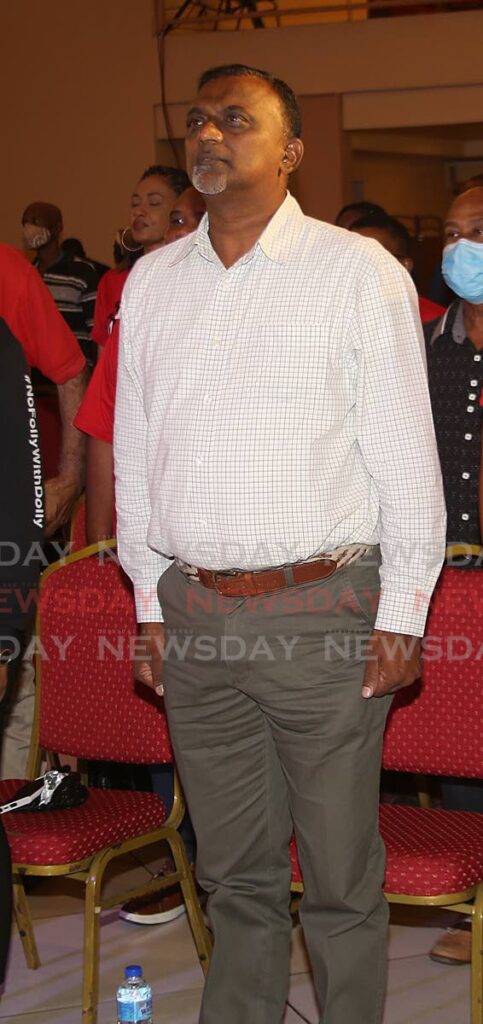Serving the party or the people?

SAMUEL SANKAR, the UNC councillor for Kelly Village/Warrenville, has consistently waved the flag of service in his quest to serve his constituents more effectively.
That journey took him to a local government reform consultation held by the line ministry in August, despite orders from the UNC leadership that the party’s councillors were not to attend.
It also took him to a PNM political meeting on Tuesday night in Chaguanas.
But UNC supporters only saw a red flag, and he was removed from UNC WhatsApp groups and described as a Judas.
Opposition Leader Kamla Persad-Bissessar declared herself neither hurt nor surprised by Mr Sankar’s actions, choosing instead to wish him well.
It remains to be seen whether that was a reverse Gethsemane kiss, a biblical-level dismissal of Mr Sankar’s enthusiasm to do better for “his people.”
Mr Sankar has consistently dismissed suggestions that he is crossing the floor, an act of political change that is unlikely to change much at the level of local government politics.
If he were doing so, it’s arguable that he’s doing it very badly, given that previous high-profile shifts in political allegiance have tended to happen quickly.
When Hector McClean resigned from the PNM in 1976 to become an independent MP, he wasn’t the first. John Richardson quit the party in 1972 when the PNM swept the elections after an opposition boycott, and became the de-facto opposition leader.
After Mr McClean’s defiance, Dr Eric Williams pushed the Crossing the Floor (Amendment) Act into law, but Parliament has never implemented it.
When the high-profile defections of Dr Vincent Lasse and Dr Rupert Griffith slammed the PNM in 1997, the party wanted their seats declared vacant, but then Speaker Mr McClean rejected that motion.
These high-level political manoeuvres raise the question of whether constituents vote for a representative or the party for which he or she is a candidate.
While the political system is supposed to endorse the character and capacity of the candidate as a representative, the long-accepted reality is that in the vast majority of electoral battles, it is party allegiance and voter loyalty that determines the outcome.
In the face of the Opposition Leader’s surprisingly gentle dismissal of Mr Sankar’s testing of political propriety, he must pause to consider what he hopes the result of his challenges to the order of politics will be.
There is certainly something to admire in Mr Sankar’s bold resistance of things normally done in local government politics and his declared motivations for doing so.
But the only thing that matters in politics is results.
With a year-long extension in office for councillors and aldermen, he has a chance to clarify his political voice or to lose it.


Comments
"Serving the party or the people?"